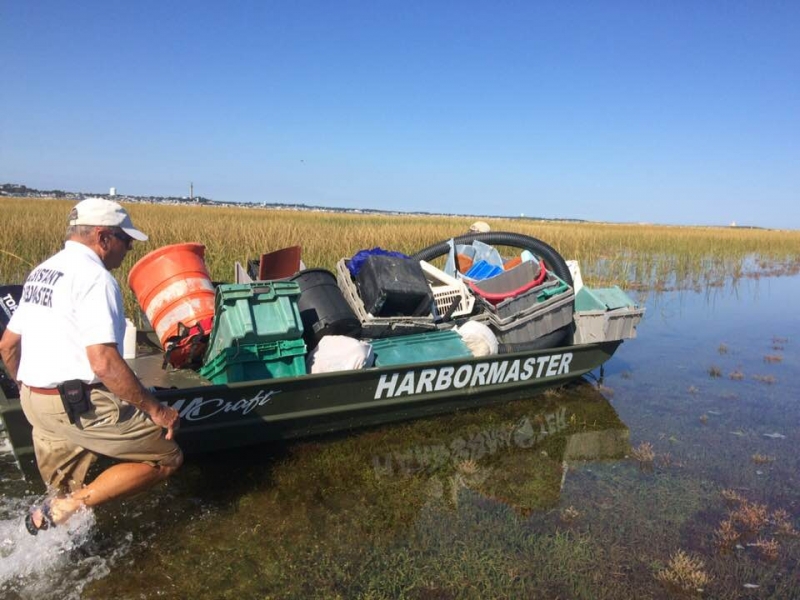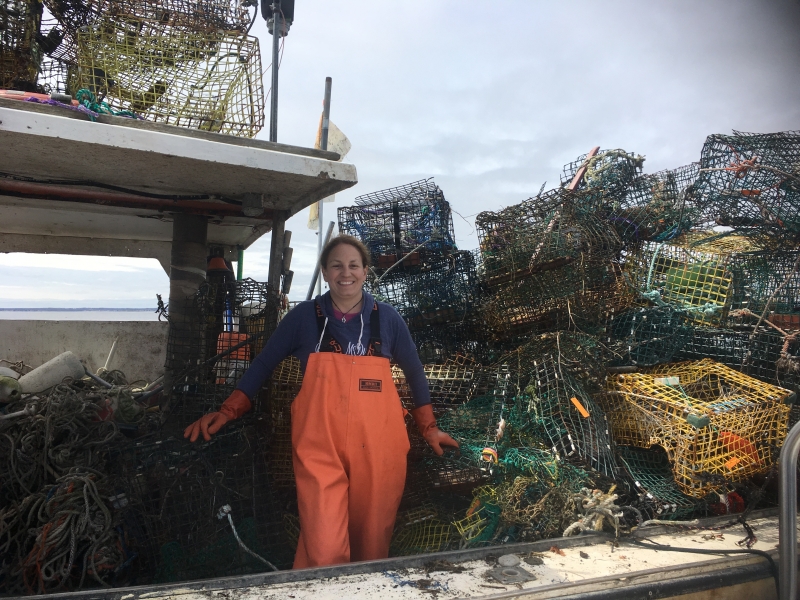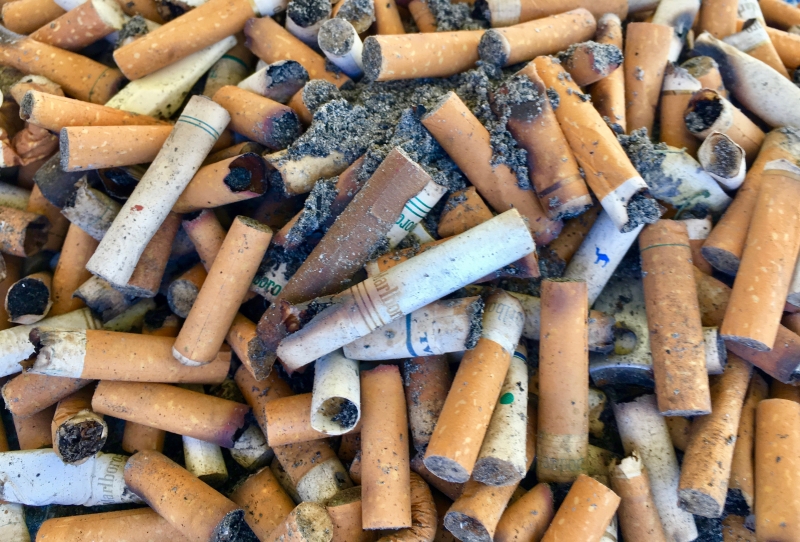From the nation’s oldest fishing port, to feeding grounds for endangered North Atlantic right whales, to a rapidly expanding aquaculture industry, New England’s productive coastlines provide so much for the people and animals who depend upon them. Our partners in the Northeast are working hard to give a little bit back by stopping marine debris at its source, removing existing debris, and educating local communities.
One risk of such active fishing industries is derelict fishing gear. Storms, propellers, and entanglement with other gear are some of the ways traps can be lost, severing the buoy from the tether line, parting groundlines, or dragging gear into deeper water until the buoy becomes submerged and untraceable. These lost traps may cause navigation hazards, damage the environment, or continue to fish for both target and non-target species. Two NOAA Marine Debris Program (MDP) funded removal projects are currently addressing derelict gear in New England.
The Center for Coastal Studies (CCS) is partnering with commercial and recreational fishers, middle school students, the Environmental Police, solid waste disposal providers, surfers, and coastal interest groups to remove gear from Cape Cod National Seashore and Cape Cod Bay. As New England experienced the first few days of spring in April, CCS partners began their work, grappling for lost traps.

Also removing derelict gear is the Seabird Restoration Program of the National Audubon Society. With help from the Gulf of Maine Lobster Foundation and several local lobstermen, partners are removing gear from Maine coastal islands and assessing the amount of debris accumulating on the shorelines.

We are fortunate to have the brilliant minds at some of New England’s renowned academic institutions working to better understand and prevent marine debris.
Experts at Woods Hole Oceanographic Institution are conducting fieldwork and lab experiments to calculate the risk of microplastic ingestion to scallop populations while scientists at the University of Connecticut are conducting research to determine the types and concentrations of microplastics ingested by oysters.
Researchers at Keene State College have partnered with students, graphic designers, comedians, and theater troops across several universities to develop multimedia text messages to send to students living near National Estuary Programs. Their hope is to change cigarette-littering behavior and share their most successful strategies with other organizations.

Uncovering more information about the marine debris our region faces every day can sometimes feel overwhelming. However, in the face of this challenge, New England is seeking solutions. We are grateful to have so many passionate voices in the region working together toward a common goal: a cleaner, healthier ocean that’s free from marine debris.

Hi, I am a current student at the University of Southern Maine and I am doing a citizen science project involving Maines's contribution to United States marine debris. If you have any suggestions on how to go about this project or have any information on Maine's total debris for 2021 please reach out via email. I would love to hear insight from this organization